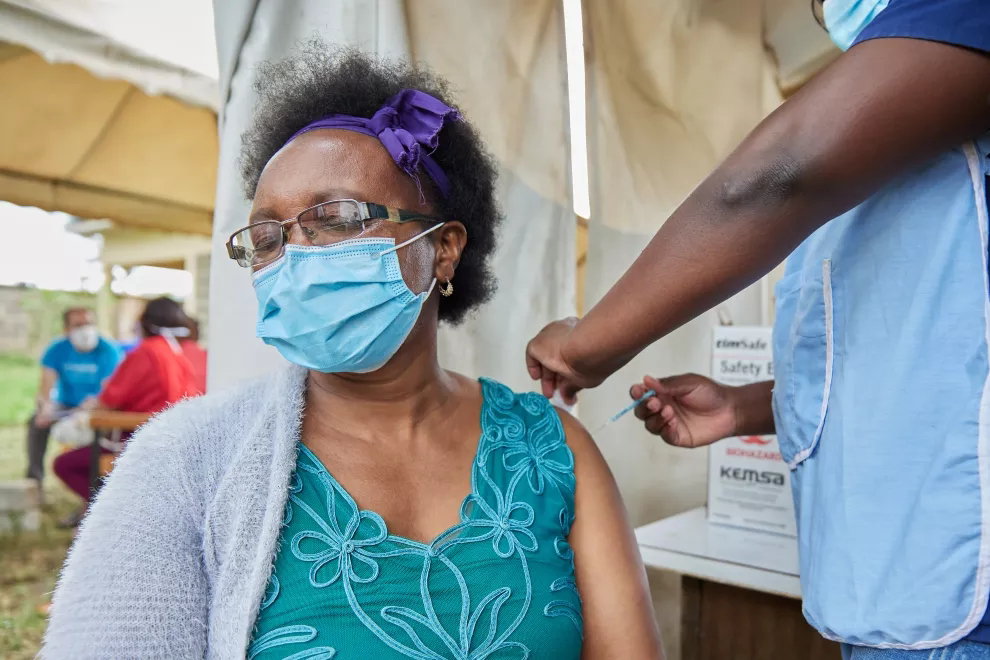On the World Humanitarian Day (WHD), 19 August, we celebrate and honor frontline workers, who, despite the risks, continue to provide life-saving support and protection to people in most need. On this day, we also commemorate humanitarians killed, harassed, performing their duty. This year's theme is "Real-Life Heroes".
But, what does it mean to be a hero? What does it take to help those in need, the poor and at-risk communities, those who are most vulnerable when a disaster strikes? Why should we hold up as heroic the deeds of those who everyday continue to extend a helping hand?
As I write this, I am mourning the death of a UN colleague. He died last Friday, struck down by COVID-19, at the age of 32. As a team member of the UN's Migration Agency, he showed exemplary dedication and commitment to the situation of migrants amidst this pandemic.He was a true frontline hero, and he is not alone.
In these extraordinary times, and despite the very real danger to themselves, Filipino front fine workers, like my fallen colleague, everyday put their own safety and well-being aside to provide life-saving support and protection to people in most need.
In the Philippines, every day since the beginning of the year, humanitarian workers have stood on the front lines dealing with the challenges arising from COVID-19 and other disaster events, like the displacement from the Taal Volcano eruption, the damage wrought by Typhoon Ambo, as well as continuing relief efforts in Marawi City and responding to those affected by the Cotabato and Davao Del Sur earthquakes. Despite the many risks, humanitarians continue to do their work, diligently and selflessly providing assistance to those who need it most.
Through years of responding to various emergencies and capitalizing on national expertise and capacity, the humanitarian community in the country has embraced a truly localized approach by recognizing what at-risk communities themselves can do in these challenging times.
The private sector in the Philippines has also stepped up in sharing its resources and capabilities, joining with other humanitarian actors to support affected local governments and communities.
As we give recognition to local real-life heroes, we also need to protect and keep them free from harassment, threats, intimidation and violence. Since 2003, some 4,961 humanitarians around the world have been killed, wounded or abducted while carrying out their life-saving duties. In 2019 alone, the World Health Organization reported 1,009 attacks against health-care workers and
facilities, resulting in 199 deaths and 628 injuries.
The COVID-19 pandemic has unveiled an important number of vulnerabilities as well as exposed our weaknesses in preventing shocks. It has also shown that the magnitude of the
challenge is exceeding the response capacity of any single partner or country. It represents, in fact, one of the most dramatic calls to work together. The success of this battle will greatly rely the important work frontline personnel do.
OMWOA ANTONY is a second year student at Chuka University pursuing a BA Degree in Journalism and Mass Communication











 MWINGI TIMES for timely and authoritative news.
MWINGI TIMES for timely and authoritative news.
No comments
Post a Comment